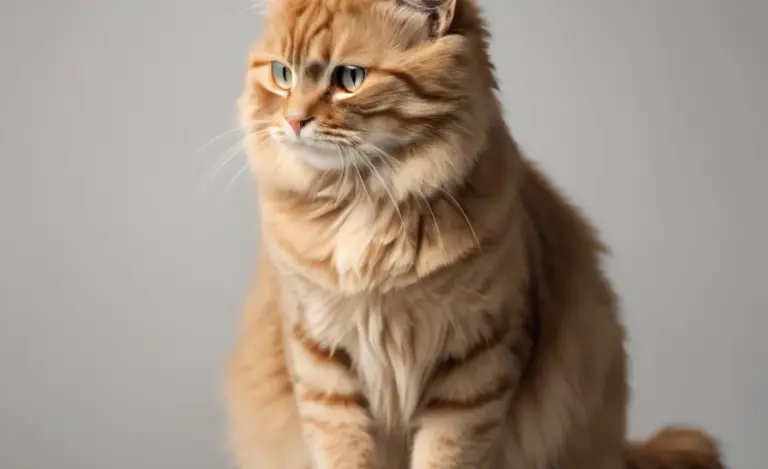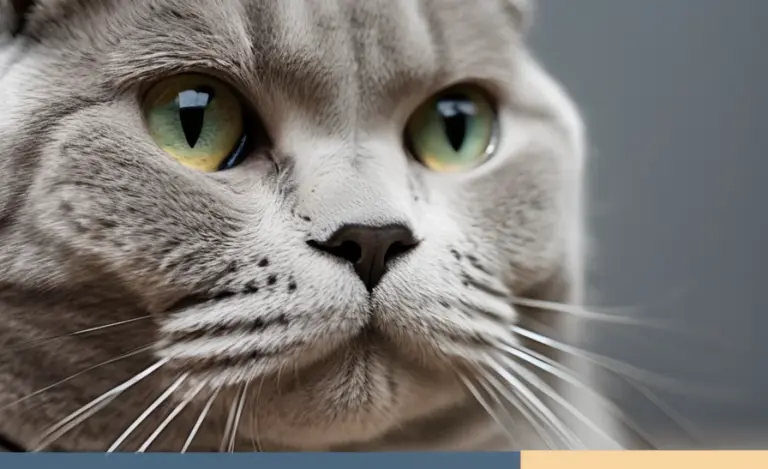Top British Shorthair Food Brands: Expert Choices
Quick Summary: Choosing the right food for your British Shorthair involves considering their age, activity level, and any specific health needs. Look for high-quality brands with real meat as the primary ingredient, moderate protein and fat, and limited fillers. Popular brands include Royal Canin, Purina Pro Plan, and Hill’s Science Diet, but always consult your vet to determine the best option for your furry friend.
Bringing a British Shorthair into your home is like adding a cuddly, round-faced family member. These cats are known for their calm and affectionate nature, but like all pets, they need the right care to thrive. One of the most important aspects of caring for your British Shorthair is providing them with a balanced and nutritious diet. It can be overwhelming to choose from the many cat food brands available, but don’t worry! I’m here to guide you through selecting the best food to keep your British Shorthair happy and healthy.
In this article, we’ll explore what to look for in cat food, discuss popular brands, and offer tips for feeding your British Shorthair at every stage of life. Let’s get started!
Understanding Your British Shorthair’s Nutritional Needs
British Shorthairs have specific dietary needs that vary depending on their age, activity level, and overall health. Understanding these needs is the first step in choosing the right food. Let’s break down the key components of a healthy diet for your British Shorthair.
Protein
Protein is essential for muscle development and overall growth. Cats are obligate carnivores, meaning they need protein from animal sources to thrive. Look for cat foods where real meat, such as chicken, turkey, or fish, is listed as the first ingredient. According to the Association of American Feed Control Officials (AAFCO), adult cat food should contain a minimum of 30% protein on a dry matter basis.
Fat
Fat provides energy and supports healthy skin and coat. It also helps cats absorb fat-soluble vitamins. The fat content in your British Shorthair’s diet should be moderate, around 15-20% on a dry matter basis. Sources of healthy fats include fish oil and poultry fat.
Carbohydrates
While cats don’t require carbohydrates in their diet, they can be a source of energy. However, it’s best to limit the amount of carbohydrates and avoid foods with excessive fillers like corn, wheat, and soy. These ingredients offer little nutritional value and can sometimes cause digestive issues.
Vitamins and Minerals
Vitamins and minerals are crucial for overall health and immune function. Look for cat foods that are fortified with essential nutrients like Vitamin A, Vitamin D, Vitamin E, and taurine. Taurine is especially important for cats as it supports heart health and vision. A deficiency can lead to serious health problems.
Water
Hydration is often overlooked, but it’s vital for your cat’s health. Ensure your British Shorthair always has access to fresh, clean water. You might also consider adding wet food to their diet to increase their water intake. Wet food has a higher moisture content than dry kibble, which can help prevent urinary tract issues.
Top British Shorthair Food Brands
With so many cat food brands on the market, choosing the right one can feel overwhelming. Here are some of the top brands recommended by vets and British Shorthair owners:
- Royal Canin: Known for their breed-specific formulas, Royal Canin offers a British Shorthair Adult formula designed to meet the unique needs of this breed.
- Purina Pro Plan: Purina Pro Plan offers a variety of formulas, including options for sensitive stomachs, weight management, and urinary health. Their focus on research-backed nutrition makes them a popular choice.
- Hill’s Science Diet: Hill’s Science Diet provides balanced nutrition and offers specialized formulas for different life stages and health conditions.
- Blue Buffalo: Blue Buffalo focuses on natural ingredients and offers grain-free options. Their formulas often include LifeSource Bits, which are a blend of vitamins, minerals, and antioxidants.
- Wellness Core: Wellness Core offers high-protein, grain-free formulas with real meat as the primary ingredient. They also include probiotics to support digestive health.
Royal Canin British Shorthair Adult Dry Cat Food
Royal Canin is a well-regarded brand, particularly known for its breed-specific formulas. The Royal Canin British Shorthair Adult Dry Cat Food is tailored to meet the unique needs of British Shorthairs.
- Pros:
- Specifically designed for British Shorthairs
- Helps maintain muscle mass with precise protein levels
- Supports healthy heart function with L-carnitine and taurine
- Kibble shape is designed for the British Shorthair’s broad jaw
- Cons:
- Can be more expensive than other brands
- Some cats may not like the kibble shape
Purina Pro Plan Focus Adult Sensitive Skin & Stomach
Purina Pro Plan is a popular choice among cat owners, and their Focus Adult Sensitive Skin & Stomach formula is a great option for British Shorthairs with sensitivities.
- Pros:
- Formulated for cats with sensitive skin and stomachs
- Contains easily digestible ingredients like salmon and rice
- Rich in omega-3 and omega-6 fatty acids for healthy skin and coat
- Fortified with live probiotics for digestive health
- Cons:
- Some cats may not like the taste
- Contains some grains, which may not be suitable for all cats
Hill’s Science Diet Adult Indoor Chicken Recipe
Hill’s Science Diet offers a variety of formulas designed to support overall health. The Adult Indoor Chicken Recipe is a good choice for indoor British Shorthairs.
- Pros:
- Specifically formulated for indoor cats
- Helps control weight with balanced calories
- Contains natural fibers to promote healthy digestion
- Supports lean muscle with high-quality protein
- Cons:
- Contains some plant-based proteins
- Some cats may prefer a different flavor
Reading Cat Food Labels
Understanding how to read cat food labels is crucial for making informed decisions about your British Shorthair’s diet. Here’s what to look for:
- Ingredient List: The ingredients are listed in descending order by weight. The first ingredient should be a named meat source, such as chicken, turkey, or fish.
- Guaranteed Analysis: This section provides information on the minimum percentages of crude protein and crude fat, as well as the maximum percentages of crude fiber and moisture.
- AAFCO Statement: Look for a statement that the food meets the nutritional levels established by AAFCO for a specific life stage, such as “growth” (kitten) or “adult maintenance.”
- “Complete and Balanced”: This phrase indicates that the food is formulated to provide all the nutrients your cat needs.
Dry vs. Wet Food: Which is Better?
Both dry and wet food have their advantages and disadvantages. Many cat owners choose to feed a combination of both to provide a balanced diet.
Dry Food
| Pros | Cons |
|---|---|
|
|
Wet Food
| Pros | Cons |
|---|---|
|
|
British Shorthair Feeding Guide: By Life Stage
Your British Shorthair’s nutritional needs will change as they grow. Here’s a guide to feeding your cat at different life stages:
Kitten (0-12 Months)
Kittens need a diet rich in protein and calories to support their rapid growth. Look for kitten-specific formulas that are higher in protein, fat, and essential nutrients like DHA for brain development. Feed your kitten small, frequent meals throughout the day. According to the The International Cat Association (TICA), kittens should have access to food at all times.
Adult (1-7 Years)
Adult British Shorthairs need a balanced diet to maintain their weight and overall health. Choose a high-quality adult cat food with moderate protein and fat. Monitor your cat’s weight and adjust their food intake as needed to prevent obesity, which is common in this breed. Feed them two meals a day.
Senior (7+ Years)
Senior cats may have different nutritional needs due to decreased activity levels and potential health issues. Look for senior-specific formulas that are lower in calories and higher in fiber to support digestion. Some senior cats may also benefit from added supplements like glucosamine and chondroitin for joint health. Feed them smaller, more frequent meals if they have trouble eating large portions.
Transitioning to a New Food
When switching to a new cat food, it’s important to do so gradually to avoid digestive upset. Here’s a simple method:
- Day 1-2: Mix 25% of the new food with 75% of the old food.
- Day 3-4: Mix 50% of the new food with 50% of the old food.
- Day 5-6: Mix 75% of the new food with 25% of the old food.
- Day 7: Feed 100% of the new food.
Monitor your cat’s stool during the transition. If they develop diarrhea or vomiting, slow down the process or consult your veterinarian.
Common Feeding Mistakes to Avoid
Even with the best intentions, it’s easy to make mistakes when feeding your British Shorthair. Here are some common pitfalls to avoid:
- Overfeeding: British Shorthairs are prone to weight gain, so it’s important to measure their food and avoid free-feeding.
- Feeding Table Scraps: Human food can be harmful to cats. Avoid giving your cat table scraps, as they may contain toxic ingredients like onions, garlic, and chocolate.
- Ignoring Dietary Restrictions: If your cat has allergies or health issues, be sure to choose a food that meets their specific needs.
- Not Providing Enough Water: Always ensure your cat has access to fresh, clean water. Consider adding wet food to their diet to increase their water intake.
Supplements for British Shorthairs
In some cases, supplements can be beneficial for British Shorthairs, especially if they have specific health concerns. However, it’s always best to consult your veterinarian before adding any supplements to your cat’s diet.
Here are some supplements that may be helpful:
- Omega-3 Fatty Acids: These can help improve skin and coat health, reduce inflammation, and support joint health.
- Probiotics: Probiotics can promote healthy digestion and boost the immune system.
- Glucosamine and Chondroitin: These supplements can help support joint health and reduce the symptoms of arthritis.
- Taurine: An essential amino acid that supports heart health and vision. Many cat foods already contain taurine, but some cats may benefit from additional supplementation.
Consulting with Your Veterinarian
The best way to determine the right food for your British Shorthair is to consult with your veterinarian. They can assess your cat’s individual needs and recommend a food that is appropriate for their age, weight, health, and activity level. Your vet can also help you identify any potential allergies or sensitivities and develop a feeding plan that works for your cat.
FAQ About British Shorthair Food
Here are some frequently asked questions about feeding British Shorthairs:
1. How much should I feed my British Shorthair?
The amount of food your British Shorthair needs depends on their age, weight, activity level, and the specific food you are feeding. Always follow the feeding guidelines on the food packaging and consult with your veterinarian for personalized recommendations.
2. Can British Shorthairs eat grain-free food?
Grain-free food can be a good option for British Shorthairs, especially if they have allergies or sensitivities to grains. However, it’s important to choose a grain-free food that is still balanced and nutritious. Consult with your veterinarian to determine if a grain-free diet is right for your cat. According to the Cornell Feline Health Center, grain-free diets should be carefully evaluated to ensure they meet all nutritional needs.
3. What are the best treats for British Shorthairs?
Choose treats that are low in calories and made with high-quality ingredients. Avoid treats that contain artificial colors, flavors, or preservatives. Freeze-dried meat treats or small pieces of cooked chicken or fish can be healthy options.
4. How often should I feed my British Shorthair?
Adult British Shorthairs should be fed two meals a day. Kittens may need to be fed more frequently, up to three or four times a day, to support their rapid growth.
5. Is wet food or dry food better for British Shorthairs?
Both wet and dry food have their benefits. Wet food can help with hydration, while dry food can promote dental health. Many cat owners choose to feed a combination of both to provide a balanced diet.
6. What should I do if my British Shorthair is a picky eater?
If your British Shorthair is a picky eater, try offering a variety of different foods to see what they prefer. You can also try warming the food slightly to enhance its aroma. If your cat is consistently refusing to eat, consult with your veterinarian to rule out any underlying health issues.
7. Can I feed my British Shorthair human food?
While some human foods are safe for cats in small amounts, it’s generally best to avoid feeding your British Shorthair human food. Many human foods are high in calories, fat, and salt, which can be harmful to cats. Additionally, some human foods contain toxic ingredients like onions, garlic, and chocolate.
Conclusion
Choosing the right food for your British Shorthair is essential for their health and well-being. By understanding their nutritional needs, reading cat food labels, and consulting with your veterinarian, you can make informed decisions about their diet. Remember to transition to new foods gradually, avoid common feeding mistakes, and consider supplements if needed. With the right care and attention, your British Shorthair will thrive and enjoy a long, happy, and healthy life by your side.



